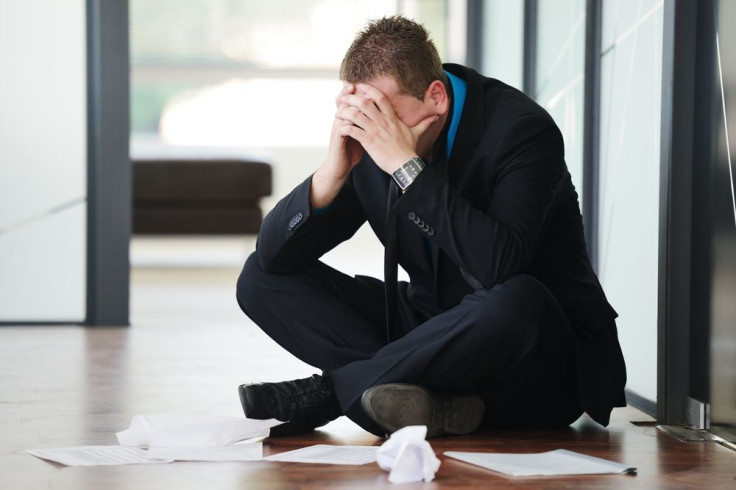People Unemployed Over A Year Are 2 Times More Likely To Be Depressed Than Employed Americans

Unemployment is taking a significant toll on a person’s personal happiness in the United States. A new poll reveals that unemployed adults in the United States were more than twice as likely to have been treated for depression than those who are currently employed. One out of every five U.S. adults who was unemployed for a year or more reported experiencing depression at some point.
“The longer that Americans are unemployed, the more likely they are to report signs of poor psychological well-being,” the author of the study, Steve Crabtree, wrote.
According to the Gallup-Healthways Well-Being Index, the depression rates doubled for U.S. adults who had been unemployed for a year or more compared to those who were unemployed for five weeks or less. The poll questioned the well-being of 356,599 Americans, of which 18,322 were unemployed for an entire year between Jan. 1 to Dec. 31, 2013.
The survey found 12.4 percent of unemployed Americans have a history of depression treatment or were currently being treated for depression, which is more than twice as much as the 5.6 percent of employed Americans. However, those who have been unemployed for six months or longer report the greatest percentage of depression, totally 18 percent.
People naturally lose faith and optimism the longer they are unemployed because of the lack of accomplishment and progress. Depression likely follows pessimism, especially for those who’ve been out of a job for months on end. Depression is clinically diagnosed as a mood disorder. The American Psychiatric Association defines depression as “a serious medical illness that negatively affects how you feel, the way you think and how you act.”
The most common symptoms are feelings of sadness or loss of interesting, changes in diet such as losses or gains in weight, insomnia or oversleeping, increased fatigue, restlessness, irritability, feelings of worthlessness or misplaced guilt, difficulty thinking or concentrating, and even thoughts of death or suicide.
Coupled with these symptoms, depression makes the job search even more difficult than it already was in the beginning. The longer a person has to endure such negative emotions, the harder it becomes to overcome and persevere, which is oftentimes why the unemployed become “stuck.”
It can become a vicious cycle of applications, interviews, disappointments, and feelings of failure. According to previous research performed by Gallup, people who are diagnosed with depression miss 68 million more days of work per year than those who aren’t depressed. This ultimately costs employers an estimated $23 billion every year.
When unemployed Americans were asked if they believed there was a likelihood of them finding a job within the next month, about 70 percent of adults who were unemployed for only five weeks or less optimistically agreed on their future prospects. However, the numbers dropped tremendously when Americans who were unemployed for a year or longer were asked. Only 30 percent believed they had a chance at finding a job in the next month.
“This marked drop in optimism may affect job seekers' motivation, increasing the risk that they will drop out of the labor force altogether,” according to Crabtree.
Source: Crabtree S. In U.S., Depression Rates Higher for Long-Term Unemployed. Gallup Well-Being. 2014.



























